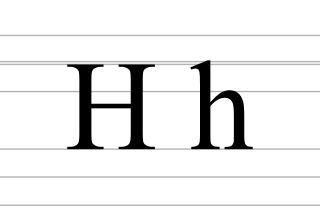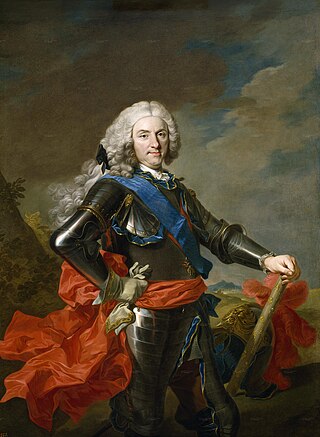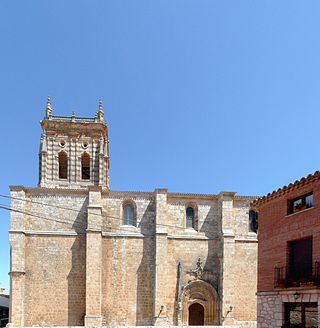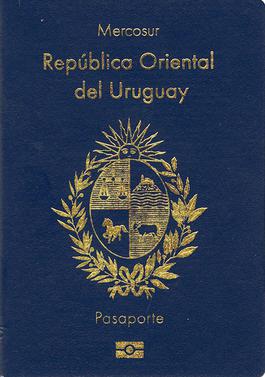
Colombia, officially the Republic of Colombia, is a country primarily located in South America with insular regions in North America. The Colombian mainland is bordered by the Caribbean Sea to the north, Venezuela to the east and northeast, Brazil to the southeast, Ecuador and Peru to the south and southwest, the Pacific Ocean to the west, and Panama to the northwest. Colombia is divided into 32 departments. The Capital District of Bogotá is also the country's largest city hosting the main financial and cultural hub. Other major urban areas include Medellín, Cali, Barranquilla, Cartagena, Santa Marta, Cúcuta, Ibagué, Villavicencio and Bucaramanga. It covers an area of 1,141,748 square kilometers and has a population of around 52 million. Its rich cultural heritage—including language, religion, cuisine, and art—reflects its history as a colony, fusing cultural elements brought by immigration from Europe and the Middle East, with those brought by the African diaspora, as well as with those of the various Indigenous civilizations that predate colonization. Spanish is the official language, although Creole, English and 64 other languages are recognized regionally.

Catalan, known in the Valencian Community and Carche as Valencian, is a Western Romance language. It is the official language of Andorra, and an official language of three autonomous communities in eastern Spain: Catalonia, the Balearic Islands and the Valencian Community, where it is called Valencian. It has semi-official status in the Italian comune of Alghero, and it is spoken in the Pyrénées-Orientales department of France and in two further areas in eastern Spain: the eastern strip of Aragon and the Carche area in the Region of Murcia. The Catalan-speaking territories are often called the Països Catalans or "Catalan Countries".

H, or h, is the eighth letter of the Latin alphabet, used in the modern English alphabet, including the alphabets of other western European languages and others worldwide. Its name in English is aitch, or regionally haitch, plural haitches.

The Philippines, officially the Republic of the Philippines, is an archipelagic country in Southeast Asia. In the western Pacific Ocean, it consists of 7,641 islands, with a total area of 300,000 square kilometers, which are broadly categorized in three main geographical divisions from north to south: Luzon, Visayas, and Mindanao. The Philippines is bounded by the South China Sea to the west, the Philippine Sea to the east, and the Celebes Sea to the south. It shares maritime borders with Taiwan to the north, Japan to the northeast, Palau to the east and southeast, Indonesia to the south, Malaysia to the southwest, Vietnam to the west, and China to the northwest. It is the world's twelfth-most-populous country, with diverse ethnicities and cultures. Manila is the country's capital, and its most populated city is Quezon City. Both are within Metro Manila.

The Romance languages, also known as the Latin or Neo-Latin languages, are the languages that are directly descended from Vulgar Latin. They are the only extant subgroup of the Italic branch of the Indo-European language family.

Spain, formally the Kingdom of Spain, is a country in southwestern Europe with territories in North Africa. It is the largest country in Southern Europe and the fourth-most populous European Union member state. Spanning across the majority of the Iberian Peninsula, its territory also includes the Canary Islands in the Atlantic Ocean, the Balearic Islands in the Mediterranean Sea, and the autonomous cities of Ceuta and Melilla in Africa. Peninsular Spain is bordered to the north by France, Andorra, and the Bay of Biscay; to the east and south by the Mediterranean Sea and Gibraltar; and to the west by Portugal and the Atlantic Ocean. Spain's capital and largest city is Madrid, and other major urban areas include Barcelona, Valencia, and Zaragoza.

Spanish or Castilian (castellano) is a Romance language of the Indo-European language family that evolved from the Vulgar Latin spoken on the Iberian Peninsula of Europe. Today, it is a global language with about 500 million native speakers, mainly in the Americas and Spain, and about 600 million when including second language speakers. Spanish is the official language of 20 countries, as well as one of the six official languages of the United Nations. Spanish is the world's second-most spoken native language after Mandarin Chinese; the world's fourth-most spoken language overall after English, Mandarin Chinese, and Hindustani (Hindi-Urdu); and the world's most widely spoken Romance language. The country with the largest population of native speakers is Mexico.

Philip V was King of Spain from 1 November 1700 to 14 January 1724 and again from 6 September 1724 to his death in 1746. His total reign is the longest in the history of the Spanish monarchy, surpassing Philip IV. Philip V instigated many important reforms in Spain, most especially the centralization of power of the monarchy and the suppression of regional privileges, via the Nueva Planta decrees, and restructuring of the administration of the Spanish Empire on the Iberian Peninsula and its overseas regions.

Charles V was Holy Roman Emperor and Archduke of Austria from 1519 to 1556, King of Spain from 1516 to 1556, and Lord of the Netherlands as titular Duke of Burgundy from 1506 to 1555. He was heir to and then head of the rising House of Habsburg. His dominions in Europe included the Holy Roman Empire, extending from Germany to northern Italy with rule over the Austrian hereditary lands and Burgundian Low Countries, and Spain with its possessions of the southern Italian kingdoms of Naples, Sicily and Sardinia. In the Americas, he oversaw the continuation of Spanish colonization and a short-lived German colonization. The personal union of the European and American territories he ruled was the first collection of realms labelled "the empire on which the sun never sets".

Villahoz is a village and municipality in the Province of Burgos, Spain. The village is in the wine region known as Ribera del Arlanza, 15 km from Lerma.

The Portugal national football team has represented Portugal in men's international football competitions since 1921. The national team is controlled by the Portuguese Football Federation (FPF), the governing body for football in Portugal. Portugal's home games are played at the Estádio Nacional stadiums in Portugal, and its primary training ground and technical headquarters, Cidade do Futebol, is located in Oeiras. The head coach of the team is Roberto Martínez, and the captain is Cristiano Ronaldo, who also holds the team records for most caps and most goals.

The Spain national football team has represented Spain in men's international football competitions since 1920. It is governed by the Royal Spanish Football Federation, the governing body for football in Spain.
A league is a unit of length. It was common in Europe and Latin America, but is no longer an official unit in any nation. Derived from an ancient Celtic unit and adopted by the Romans as the leuga, the league became a common unit of measurement throughout western Europe. Since the Middle Ages, many values have been specified in several countries.

Diario AS is a Spanish daily sports newspaper that concentrates particularly on football.

The Boletín Oficial del Estado is the official gazette of the Kingdom of Spain and may be published on any day of the week. The content of the BOE is authorized and published by Royal Assent and with approval from the Spanish Presidency Office.

Uruguayan passport is an identity document issued to Uruguayan citizens to travel outside Uruguay. For traveling in Mercosur countries, as well as Chile and Bolivia, Uruguayan citizens may use their ID card.. For naturalised legal citizens, the nationality of origin will still apply as Uruguayan nationality law currently doesn't give nationality to naturalised citizens, which may mean a visa may still required when travelling. This challenge appears to arise from a literal interpretation from the ICAO 9303 part 3 manual, which in its Spanish translation, uses the word nationality rather than the original English version which refers to citizenship in the case of the country code that applies in the machine readable zone. Paragraph 7.1 of ICAO 9303 part 3 notes that an error to avoid is "MRZ citizenship incorrectly reports the country of birth rather than citizenship.". Uruguay's national identity authority uses country of birth in lieu of nationality for naturalised citizens, leading to error responses on migratory and airline legal identity checks.

Argentina, officially the Argentine Republic, is a country in the southern half of South America. Argentina covers an area of 2,780,400 km2 (1,073,500 sq mi), making it the second-largest country in South America after Brazil, the fourth-largest country in the Americas, and the eighth-largest country in the world. It shares the bulk of the Southern Cone with Chile to the west, and is also bordered by Bolivia and Paraguay to the north, Brazil to the northeast, Uruguay and the South Atlantic Ocean to the east, and the Drake Passage to the south. Argentina is a federal state subdivided into twenty-three provinces, and one autonomous city, which is the federal capital and largest city of the nation, Buenos Aires. The provinces and the capital have their own constitutions, but exist under a federal system. Argentina claims sovereignty over the Falkland Islands, South Georgia and the South Sandwich Islands, the Southern Patagonian Ice Field, and a part of Antarctica.

Peñón of Algiers was a small islet off the coast of Algiers, fortified by the Kingdom of Spain during the 16th century. The islet was connected to the African continent to form a seawall and the harbour of Algiers.
La Nueva España is a daily newspaper in Spain. Published in Oviedo, it serves Asturias. The publisher of the paper is Editoral Prensa Asturiana. It is published in tabloid format. The paper has an independent political stance.

Jesús Gil Manzano is a Spanish football referee. He officiates in the Spanish Primera División. He made his La Liga debut on 25 August 2012 in a game between Málaga and Mallorca. Gil Manzano also appeared in the 2013–14 Copa del Rey quarterfinals game between Racing de Santander and Real Sociedad, where Racing refused to play after one minute.

















